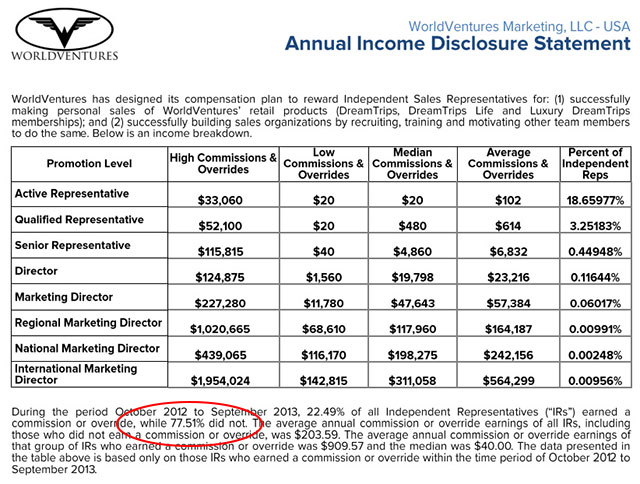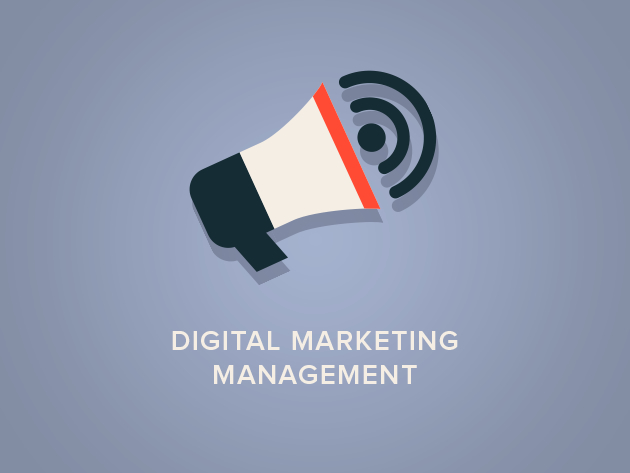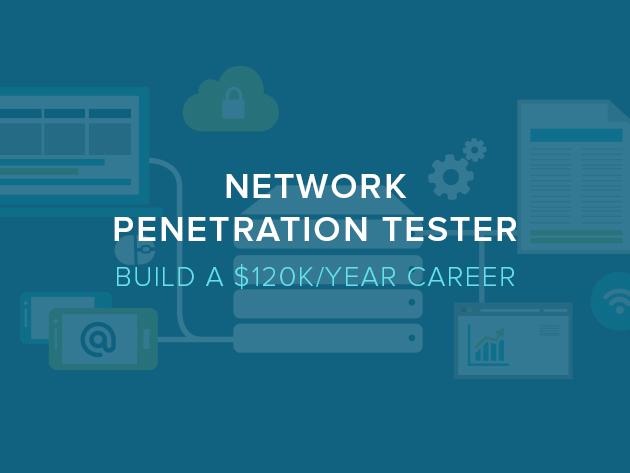

Last week, someone tried to sell me what essentially amounted to little more than a jumped-up pyramid scheme. I was quite surprised, because I didn’t realize such business models were still so prolific, and that all the negative press hadn’t destroyed the industry for good.
It turns out that many of these schemes — now dubbed multilevel marketing (MLM) “business opportunities” — are in fact making a bit of a comeback, and social media networks (in particular Facebook) are the new platform of choice for those looking to recruit more investors.
Just in case you ever get tempted, here are a few things you might want to keep in mind the next time a Facebook friend comes knocking with an unmissable business opportunity.
A pyramid scheme is characterized by an unsustainable growth model that’s prone to collapse, and as a result they’re illegal in most parts of the world. The core business practice relies on recruitment, with no sales of goods or services of any value taking place. Investors essentially pay money to those above them in the pyramid to be a part of the scheme, with any return on investment coming from new recruits “below” them.

The more people that are signed up, the more money makes its way up the pyramid (quite often there are fees to remain a part of the process, which ensures money continues to make its way to the upper tiers). Such schemes can be very profitable for those at the top of the pyramid, but as the image below demonstrates, they quickly become unsustainable.
Over the past century, endless variations of the pyramid scheme have popped up, with ever-more complex rules and models. Names like “gifting circles” and “marketing grids” have been used interchangeably to hide the true nature of what is taking place, and governments around the world have moved to make the schemes illegal. The U.S., U.K., Australia, New Zealand, and Canada are among just a few of the countries which have outlawed this century-old scam.
I just remembered that Trump was a spokesperson for a pyramid scam (sorry MLM) video phone. https://t.co/6O85zbK3Sx pic.twitter.com/eDHHHlbMJG
— Tsar (@Boudreauxdadog) December 9, 2015
So how is Facebook fuelling the comeback of such questionable business practices? Pyramid schemes have essentially been rebranded for the Internet age, under the guise of “multilevel marketing” schemes. But don’t be fooled, the two have more than a few similarities.
Multilevel marketing schemes essentially skirt the law and “pyramid” moniker by involving the sale of actual products, much of the time under a subscription model. They involve two levels of participation: the product, and the chance to become a partner who recruits more people to sell the product. Generally speaking, users cannot become referral partners without themselves first being enrolled in the sales side of the business.

Quite often users will be told that most people aren’t interested in the opportunity to become resellers, but the incentives to do so (like waived subscription fees) appear very compelling on the surface. This often leads to more emphasis being placed on the referral side of the business, over actually selling the product offered in the first place.
The problems with most MLMs are varied, beyond more than a passing resemblance with the pyramid schemes of yore. Just like pyramid schemes, most of these schemes appear unsustainable, as they also rely on the signing-up of more salespeople to sell a product. When the product is being given away for free as an incentive for signing users up (a common marketing tactic to tempt new referral partners), you’re essentially looking at the pyramid business model that’s previously been outlawed.
Furthermore, there are quite often many hidden costs you won’t be told about upon signing up. Users signed up “beneath” a salesperson are commonly referred to as their “downline” — and if you can’t grow your downline, you’ll be urged to take part in training seminars, or use additional sales tools provided by the company themselves. You guessed it — these often aren’t free, with everything from small training functions to large seminars costing hundreds of dollars to attend.
I see more and more people using their personal Instagram and Facebook accts for marketing some pyramid scheme they're apart of. Plz stop
— Ryan Ely (@rme0228) November 24, 2015
It also pays to take a look at the product, because much of the time it isn’t all it’s cracked up to be. I was told that my membership to one particular scheme would enable me to book cheap travel to luxury destinations, but there’s no way of seeing these amazing deals before signing up. In fact, the advertised cost didn’t include flights or further travel, which quite often makes up the bulk of the price in any package holiday. There are plenty of free iPhone apps that will allow you to save money on travel, and they don’t involve paying money in order pay out more money later.
Don’t be surprised if the compensation schemes involved for becoming a representative are complex. Most are so complex that you probably won’t fully understand them yourself, which is the whole point. Caps on payouts, a minimum number of referrals before you’re paid, and misleading promises of free cars are not uncommon. A typically worrying example of the latter involves actually signing up for the “brand new luxury car” in your own name, and receiving compensation in the form of payments — provided you remain at a certain tier within the program. Fail to make the grade? Now you have a car loan to pay for too.

Disingenuous claims (often as a result of the overly complex nature of the business) are also all too common, with my favorite being “no money is spent on outward marketing at all” — this is purely because the business model relies on new recruits to market like crazy in order to make any sort of return on the initial investment. It’s no wonder sales tactics are often referred to as “cult-like.”
Previously schemes like Amway, founded in 1959 and relying entirely on the multilevel marketing model to sell their products, required a very real list of friends or acquaintances to exploit in order to make your newfound career a success. Facebook makes this considerably easier, with a seemingly endless list of potential “clients” and “business partners” to connect with.
Added a friend I knew from elementary school on FB cause I wanted to catch up and instead he's trying to get me into his pyramid scheme loll
— Jeffrey Todd (@All_Hail_JTodd) December 10, 2015
First established as a social tool for university students, before being opened up to the general public as a way to keep in touch on a global scale, Facebook is now a multilevel marketer’s dream. It’s not unusual to add a contact on Facebook you’ve never met, or only met through friends once or twice. This essentially turns a friends list into an ever-expanding register of potential customers.
Except generally, Facebook friends are just that — your friends, and friends are more likely to trust an invite to get together to discuss something really exciting than a random person marketing to you in a bar or on the street. We let our guard down among friends, we assume the best, and we’re more willing to connect in person with someone we feel that we know; even if they only “Like” the occasional update.
Facebook is an opportunity to sell an image (you probably do it without even realizing). We choose our best photos for profile pictures, we update our cover images with themes we want to project, we post pictures of ourselves on holiday — all in the name of selling an image that probably doesn’t sum up an average day in our lives. I’m not saying all your Facebook friends are fake, but social media fosters an undeniable urge to fit in and impress.
I'll say it again. Don't ever, EVER add a bunch of people to a Facebook group for your #MLM business. (Happened AGAIN to me tonight.)
— Julie Masson (@juliermasson) December 11, 2015
To many multilevel marketers, this image is taken to the next level. They want you to want what they have, but often the specifics of the business are kept under wraps. I can only assume that those embroiled in MLM schemes are often fed the same instructions about making an impression among potential customers and referral partners. Rarely is the product the focus of this image, but the success of the business. This is only based on my own firsthand experience, of course.
You’ve probably already heard of countless companies that depend on MLM to sell their wares, and the very mention of some of these names might reveal why the “success” of the business is the focus, rather than the product:
Not all MLM schemes are the same, but most will end up in the vast majority of investors losing money (some detractors quote loss rates of over 99%). You probably want to avoid getting involved altogether, but that’s often easier said than done — especially when you feel like you’re helping a friend out.
The best way to avoid getting involved is not to take Facebook “friends” up on their event invites in the first place. Deliberately vague event invitations that makes reference to undisclosed business opportunities should ring alarm bells, along with alarming levels of enthusiasm for something that seems too good to be true.
Genuine invites to get together usually don’t make any mention of “wine and nibbles” — friends don’t organize genuine get-togethers and draw attention to the free stuff you’ll be getting while you’re there. Furthermore, friends you barely know don’t usually invite you into their homes, so if you don’t know the person on the other end of the Facebook invite, it might be best to find out a little more before you dedicate a whole evening to their sales pitch.
If you do end up attending such a function, you’ll probably notice a few hallmarks of the MLM scheme that will give it away:
Remember that anything that seems to good to be true almost always is, especially when it comes to online money-making schemes and direct sales opportunities. Even if you decide that a particular MLM is worth a punt, you should never sign up right there and then. Conveniently leave your credit card at home, particularly if you’re feeling obliged to sign up out of politeness.
Once you’ve left, research anything you may be considering signing up for with a healthy degree of skepticism. Don’t just cherry pick the positive reviews or hang out in Facebook groups, type “<company name> scam” into Google and see what comes up. The worst case scenario is that you’ll be pleasantly surprised.
I fell for the Herbalife scam, guys. For like a year. Go ahead and judge me. I'm still judging myself.
— WhatATimeToBeABae (@T_dot_Lee_PhD) March 21, 2015
Don’t just stop there — research the founders too. In my case, both founders had been found guilty of tax fraud and had been involved in an MLM scheme that had since ceased trading (never a good sign). See if you can find evidence of legal disputes and lawsuits — again my own research revealed that the company had been declared a pyramid scheme in Norway. They also used some pretty heavy handed legal tactics to silence detractors and ex-members hoping to expose the true nature of what was going on.
Facebook is an amazing tool for connecting with old school friends and finding new acquaintances. It’s also awash with get rich quick schemes and complex scams, so you should exercise caution and always question the true motives of someone approaching you with a business opportunity of this ilk.
I’d probably get in trouble if I declared all multilevel marketing schemes to be scams, but after doing my research I’d never recommend you become involved in one.
If you want to make some easy money, you can always flog your personal information for around $2000 per year. Further online money making schemes involve writing, transcribing, and tutoring and playing video games, and you can even put the Internet to good use and reduce your credit card and other debt too.
What have your Facebook experiences with pyramid schemes been like? Were you added to an MLM group? Did you sign up to the scheme? What happened?




 MGS V: The Phantom Pain iDROID Guide: Usage As Aerial Command Center, How To Access Cassette Tapes, Briefing Tapes
MGS V: The Phantom Pain iDROID Guide: Usage As Aerial Command Center, How To Access Cassette Tapes, Briefing Tapes Glitch Allows You To Get Unlimited Items From Chem Cooler In Fallout 4
Glitch Allows You To Get Unlimited Items From Chem Cooler In Fallout 4 Citizens of Earth Wiki – Everything you need to know about the game .
Citizens of Earth Wiki – Everything you need to know about the game . Windows 10 Guide: How To Stream Xbox One Games To Your Windows 10 PC
Windows 10 Guide: How To Stream Xbox One Games To Your Windows 10 PC Learn White Hat Hacking & Penetration Testing for $19
Learn White Hat Hacking & Penetration Testing for $19